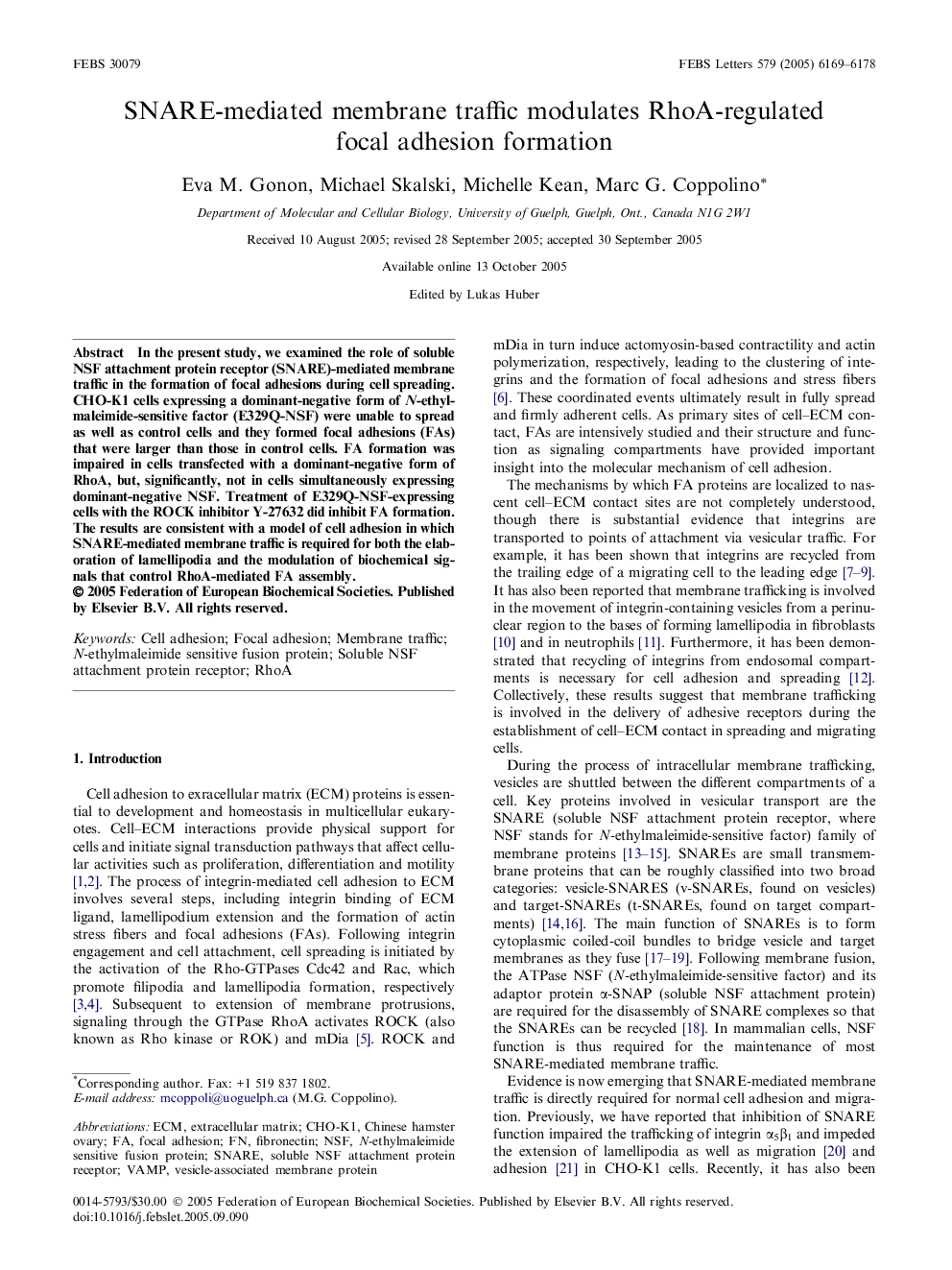| Article ID | Journal | Published Year | Pages | File Type |
|---|---|---|---|---|
| 2051960 | FEBS Letters | 2005 | 10 Pages |
In the present study, we examined the role of soluble NSF attachment protein receptor (SNARE)-mediated membrane traffic in the formation of focal adhesions during cell spreading. CHO-K1 cells expressing a dominant-negative form of N-ethylmaleimide-sensitive factor (E329Q-NSF) were unable to spread as well as control cells and they formed focal adhesions (FAs) that were larger than those in control cells. FA formation was impaired in cells transfected with a dominant-negative form of RhoA, but, significantly, not in cells simultaneously expressing dominant-negative NSF. Treatment of E329Q-NSF-expressing cells with the ROCK inhibitor Y-27632 did inhibit FA formation. The results are consistent with a model of cell adhesion in which SNARE-mediated membrane traffic is required for both the elaboration of lamellipodia and the modulation of biochemical signals that control RhoA-mediated FA assembly.
